Biodiversity in food factories
Many industries and businesses are looking to reduce their carbon footprint. Announcing major plans to restructure their processes for the good of the planet. However, there’s a feeling that the food production industry – from farming to the factory – is being left behind.
It is important we explore the relationship between biodiversity and food production, highlighting stories of positivity bucking the trend.
Turning loss into gain
A report from Nature believes that, by 2050, it will be possible to have reversed biodiversity loss. In 2022, it’s about taking positive first steps in a long, but important, journey.
Whilst some companies are considering of biodiversity in food production, the conversation is far quieter than other environmental issues. As that starts to change, can consumer concerns be a driving factor for change?
The incentives of acting
Public perception can be a powerful thing. Failure to address issues that the public consider paramount can see the goodwill of customers, stakeholders and clients fade. On the flip side, new business models can help businesses navigate into profitable new markets centred around sustainability.
As time ticks on, there will be increased pressure from the government on businesses to play their part. Acting now can help swerve significant costs in the future.
Food farming and our need to feed an ever-increasing population is the primary driver of biodiversity loss. More mouths to feed means we need more land Our World In Data’s research says that agriculture now accounts for around half of the planet’s habitable land. Yet it doesn’t have to be a direct correlation.
Getting to net gain
Organic farming is essential for biodiversity net gain. Positive, peer-reviewed research published as far back as 2017 by Nature Plants found that pesticide usage in farms isn’t correlated to productivity. They found that 94% of farms studied would not lose production if they cut their pesticide usage, with two-fifths producing more.
The research also indicated that 78% of farms would be equally or more profitable when using fewer pesticides.
But what does biodiversity mean for food factories?
There are many things that food factories can do to make sure they reduce their carbon footprint.
For deliveries in and out of factories, the choice of vehicle can play a significant role. An 80% reduction in tailpipe emissions is expected to be achieved from the use of biomethane trucks been used as part of a partnership between Marks & Spencer and DHL.
M&S have gone one further too, bringing together stakeholders in its work with the WWF to address water scarcity in multiple regions.
Packaging is also a key point for review. Hovis, Quorn and McCain are amongst the 100+ companies to have signed up for the UK Plastic Pact. All major UK supermarkets have also signed up. The pact, which acts across the plastics supply chain, is helping create a circular economy which keeps plastic in the economy in the economy and out of the natural environment.
Changes made can go right down to minimizing food waste. As per one of our previous blogs, factory optimization, inventory management and quality control can play an important role to ensure what is farmed is consumed.
Most importantly, however, is assessing whether a factory is designed to maximise water and energy efficiency as well as productivity. As food & beverage construction experts, Ambrey Baker can redesign and revitalize live food production facilities, executing turnkey projects that can create instant benefits.
To find out how we can help you create food factories built for a biodiverse future, get in touch today at enquiries@ambreybaker.co.uk



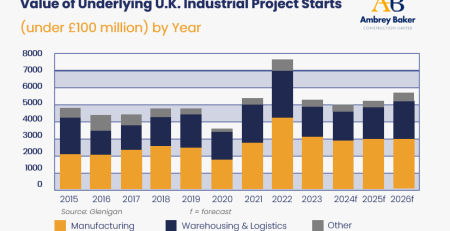
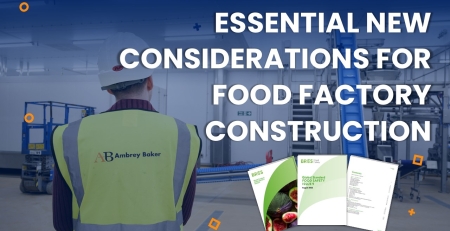

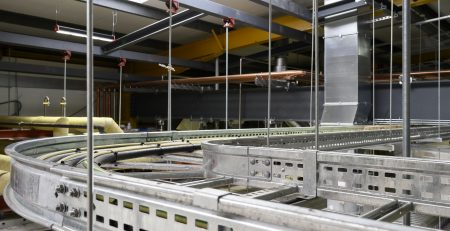
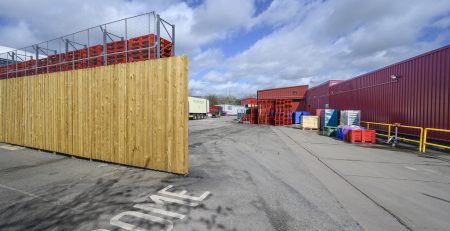
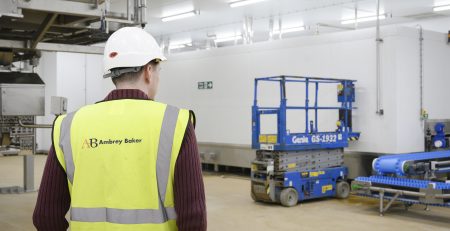
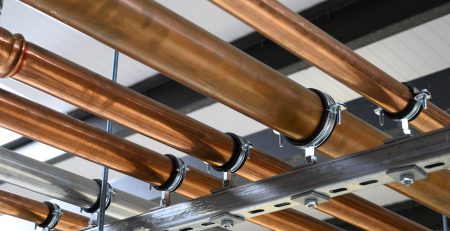
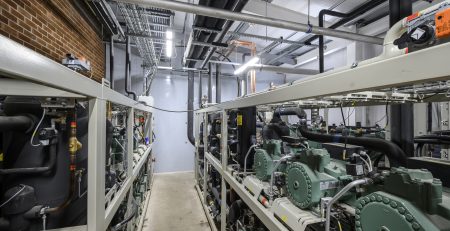
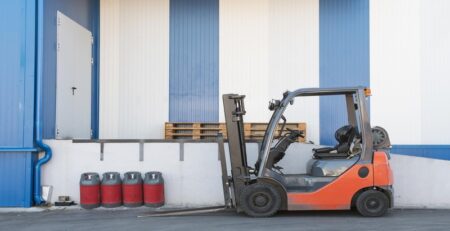
Comments (61)
Your article helped me a lot, is there any more related content? Thanks!
Thanks for sharing. I read many of your blog posts, cool, your blog is very good. https://www.binance.com/fr-AF/register?ref=JHQQKNKN
Can you be more specific about the content of your article? After reading it, I still have some doubts. Hope you can help me. https://www.binance.com/fr-AF/register?ref=JHQQKNKN
Can you be more specific about the content of your article? After reading it, I still have some doubts. Hope you can help me.
Thank you for your sharing. I am worried that I lack creative ideas. It is your article that makes me full of hope. Thank you. But, I have a question, can you help me?
Thank you for your sharing. I am worried that I lack creative ideas. It is your article that makes me full of hope. Thank you. But, I have a question, can you help me?
Hi, i think that i saw you visited my web site thus i came to “return the favor”.I’m attempting to find things to improve my site!I suppose its ok to use some of your ideas!!
F*ckin’ tremendous things here. I’m very glad to see your post. Thanks a lot and i’m looking forward to contact you. Will you kindly drop me a mail?
I got what you intend, thanks for putting up.Woh I am delighted to find this website through google. “It is a very hard undertaking to seek to please everybody.” by Publilius Syrus.
The heart of your writing whilst appearing reasonable initially, did not really work well with me personally after some time. Somewhere throughout the sentences you actually managed to make me a believer but just for a short while. I nevertheless have got a problem with your leaps in assumptions and you might do well to help fill in those breaks. When you can accomplish that, I could definitely end up being impressed.
Hey would you mind sharing which blog platform you’re working with? I’m going to start my own blog soon but I’m having a hard time choosing between BlogEngine/Wordpress/B2evolution and Drupal. The reason I ask is because your design seems different then most blogs and I’m looking for something unique. P.S Apologies for getting off-topic but I had to ask!
I’m really enjoying the theme/design of your website. Do you ever run into any web browser compatibility problems? A handful of my blog readers have complained about my website not operating correctly in Explorer but looks great in Safari. Do you have any ideas to help fix this problem?
Can you be more specific about the content of your article? After reading it, I still have some doubts. Hope you can help me.
Wow! Thank you! I continuously wanted to write on my blog something like that. Can I take a portion of your post to my site?
Your point of view caught my eye and was very interesting. Thanks. I have a question for you.
I as well think thence, perfectly pent post! .
you are really a excellent webmaster. The web site loading velocity is amazing. It seems that you’re doing any unique trick. In addition, The contents are masterwork. you have done a excellent activity on this matter!
Great remarkable things here. I am very happy to look your post. Thank you a lot and i am looking forward to touch you. Will you kindly drop me a mail?
I love reading through and I conceive this website got some really utilitarian stuff on it! .
I am impressed with this website , real I am a big fan .
Hi, Neat post. There is a problem with your web site in internet explorer, would test this… IE still is the market leader and a good portion of people will miss your excellent writing because of this problem.
I like what you guys are up too. Such smart work and reporting! Carry on the superb works guys I have incorporated you guys to my blogroll. I think it will improve the value of my web site 🙂
I think other website owners should take this site as an example , very clean and superb user pleasant layout.
I wanted to thank you for this great read!! I definitely enjoying every little bit of it I have you bookmarked to check out new stuff you post…
Greetings from Los angeles! I’m bored to tears at work so I decided to check out your blog on my iphone during lunch break. I enjoy the knowledge you present here and can’t wait to take a look when I get home. I’m surprised at how fast your blog loaded on my cell phone .. I’m not even using WIFI, just 3G .. Anyways, awesome site!
Great ?V I should definitely pronounce, impressed with your website. I had no trouble navigating through all the tabs as well as related info ended up being truly simple to do to access. I recently found what I hoped for before you know it at all. Reasonably unusual. Is likely to appreciate it for those who add forums or anything, site theme . a tones way for your client to communicate. Excellent task..
Explore a wide range of unique cycling gear, including jerseys, bib shorts, and custom designs. Perfect for every cyclist, from casual riders to pros. High-quality materials, standout designs, and options for personalization make it easy to find the perfect fit for you or your team. Shop now and ride in style!
Very instructive and excellent bodily structure of articles, now that’s user pleasant (:.
Magnificent beat ! I wish to apprentice whilst you amend your website, how could i subscribe for a blog web site? The account helped me a acceptable deal. I were a little bit acquainted of this your broadcast offered brilliant clear idea
Great write-up, I am normal visitor of one?¦s website, maintain up the excellent operate, and It’s going to be a regular visitor for a lengthy time.
Great post. I was checking constantly this blog and I am impressed! Very helpful info particularly the last section 🙂 I handle such info much. I was seeking this particular info for a very lengthy time. Thank you and best of luck.
Real good info can be found on blog.
Howdy, i read your blog from time to time and i own a similar one and i was just curious if you get a lot of spam feedback? If so how do you protect against it, any plugin or anything you can suggest? I get so much lately it’s driving me crazy so any help is very much appreciated.
Of course, what a splendid site and illuminating posts, I surely will bookmark your site.All the Best!
You are a very clever individual!
Wow, awesome blog layout! How long have you been blogging for? you made blogging look easy. The overall look of your website is great, as well as the content!
Can I just say what a relief to find someone who actually knows what theyre talking about on the internet. You definitely know how to bring an issue to light and make it important. More people need to read this and understand this side of the story. I cant believe youre not more popular because you definitely have the gift.
Just wanna input on few general things, The website design is perfect, the content is real wonderful. “The enemy is anybody who’s going to get you killed, no matter which side he’s on.” by Joseph Heller.
I believe this web site has got some very excellent info for everyone : D.
It’s really a nice and helpful piece of info. I’m happy that you just shared this useful information with us. Please keep us up to date like this. Thanks for sharing.
I loved as much as you will obtain performed proper here. The sketch is tasteful, your authored subject matter stylish. nonetheless, you command get bought an edginess over that you want be handing over the following. ill indubitably come further beforehand again as exactly the same nearly a lot often inside case you protect this increase.
CSGORoll is the best CS2 gambling site in United Kingdom that offers a wide variety of virtual games that use CS:GO skins as currency.
Great post, I think people should larn a lot from this web blog its very user genial.
Terrific work! This is the type of info that should be shared around the net. Shame on the search engines for not positioning this post higher! Come on over and visit my site . Thanks =)
My brother suggested I might like this blog. He was once totally right. This publish truly made my day. You cann’t imagine just how much time I had spent for this information! Thank you!
Rattling fantastic info can be found on site. “Preach not to others what they should eat, but eat as becomes you, and be silent.” by Epictetus.
A lot of of the things you point out is astonishingly legitimate and it makes me ponder the reason why I had not looked at this with this light before. This article truly did turn the light on for me personally as far as this subject goes. Nevertheless at this time there is one particular issue I am not necessarily too comfortable with so while I try to reconcile that with the actual main theme of the point, allow me observe just what the rest of your visitors have to point out.Well done.
My partner and I absolutely love your blog and find most of your post’s to be what precisely I’m looking for. Do you offer guest writers to write content available for you? I wouldn’t mind creating a post or elaborating on a lot of the subjects you write concerning here. Again, awesome site!
Great line up. We will be linking to this great article on our site. Keep up the good writing.
As soon as I observed this web site I went on reddit to share some of the love with them.
You are my aspiration, I own few web logs and rarely run out from to post .
We stumbled over here different website and thought I should check things out. I like what I see so now i’m following you. Look forward to looking over your web page again.
Can you be more specific about the content of your article? After reading it, I still have some doubts. Hope you can help me.
Some really nice and utilitarian information on this site, too I think the pattern has fantastic features.
Way cool, some valid points! I appreciate you making this article available, the rest of the site is also high quality. Have a fun.
Dead written content material, Really enjoyed looking at.
I’d forever want to be update on new content on this internet site, saved to favorites! .
My Home Heating are boiler servicing experts in Tewkesbury Gloucestershire. we specialise in bringing warmth and comfort to homes across Tewkesbury and the surrounding areas. As your local heating experts, we take pride in delivering high-quality solutions for all your home heating needs. Whether you’re a homeowner or property manager, our skilled team is dedicated to ensuring your heating systems are safe, efficient, and reliable.
Beauty Clinic London is the place where you can get a wide range of beauty services. We offer a variety of facial and body treatments including massage, facial cleansing, laser hair removal and injectable techniques.
Hello There. I found your blog using msn. This is a very well written article. I will be sure to bookmark it and come back to read more of your useful information. Thanks for the post. I will definitely comeback.
I truly appreciate this post. I’ve been looking all over for this! Thank goodness I found it on Bing. You’ve made my day! Thank you again